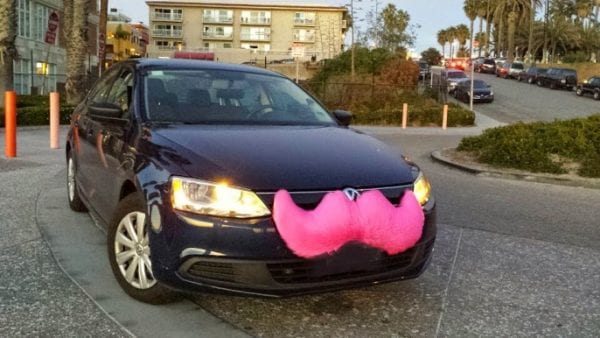
Stuck in the Regulatory Stone Age, FCC Trying to Hold Back Lyft
Taxpayers Protection Alliance
November 11, 2015
The growth of government comes in some of the most obvious and costly measures for the economy by way of wasteful spending and higher taxes. But, another way that big government wreaks havoc on the private sector is through regulations. The Federal Communication Commission (FCC) has been a repeat offender when it comes to using regulatory power to stifle growth and investment in certain parts of the telecommunications sector. Now, their reach is broadening beyond telecom and hitting in parts of the private sector that could have harmful consequences going forward for a variety of industries.
In September, the FCC cited Lyft for what they deemed violations of consumer protections relating to automated messaging for mobile users. Michelle Meyers of CNET reported on the agency’s actions against the popular ride-sharing service:
US regulators slapped ride-hailing service Lyft with a citation Friday for breaking rules that protect consumers from unwanted robocalls and texts.
The Federal Communications Commission said San Francisco-based Lyft, which makes a smartphone app that pairs passengers with drivers, doesn’t let users access the service if they opt out of automated marketing calls and texts. That’s a violation of the Telephone Consumer Protection Act, according to the citation (PDF).
The FCC and specifically Chairman Tom Wheeler are no strangers when it comes to the power of the federal government in order to expand the reach of the bureaucracy. During his tenure as FCC Chairman, Wheeler has been a strong force in pushing for the classification of the Internet as a public utility under Title II. That classification has led to the adoption of net neutrality rules which have deterred private sector investment in broadband infrastructure and set off a new wave of lawsuits aiming to stop the FCC from fully implementing net neutrality regulations (after previously losing in the courts twice, this will be the third round). The move against Lyft is just the latest is what has been a new normal for the agency, using their regulatory authority against them if they don’t like a particular business or business model.
The company moved swiftly and responded to the FCC’s citation by making changes to their terms of service agreements, while maintaining that they had “not been using promotional texts to spam users with unwanted communications.”
Lyft’s quick response notwithstanding, the problem is that the FCC is living in a world that has long since passed them by, and it shows. Whether it’s net neutrality or consumer protections, the onslaught of regulations that the agency has moved to impose on private sector industry players continue to ignore the realities of today’s advancements in technology and consumer demands.
There is some good news as the FCC continues its aggressive actions and expanded reach into the private sector. First, the judicial branch is still a battleground where the agency has seen some of its expansive power and overreach taken away.
More importantly though, the agency is not monolithic in their view, there are champions for free enterprise and less regulations who can influence decision-making. Take for instance the dissent of Commissioner Michael O’Reilly on the citation against Lyft:
“Today’s enforcement bureau action showcases once again the commission’s complete cluelessness when it comes to the tech economy, missing the point about how these free, popular, and entirely optional services actually work. The bureau is targeting two innovators who are putting power in consumers’ hands to pay for their groceries or locate a safe ride directly from their mobile phones, for communicating with their customers on mobile phones.”
Commissioner O’Reilly is not alone, Commissioner Ajit Pai (who has been a guest on the TPA podcast) has also been a champion for the free-market in the face of new technologies and a changing economic landscape.
The important takeaway from this dust-up between the FCC and Lyft is that even though the ride-sharing service made changes that the FCC asked for, the FCC should stop getting involved in the intimidation business. New companies that don’t have the capital or manpower to deal with the FCC may be wary of expansion with the looming threat of increased regulation from an agency that knows no boundaries. TPA will continue to call out the FCC and Chairman Wheeler when their overreach harms taxpayers, consumers, and businesses at the expense of the economy and innovation.
